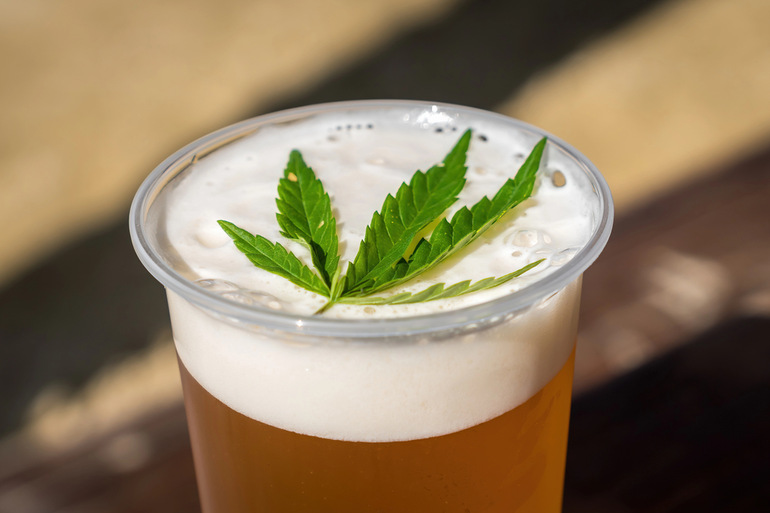The craft beer world consistently develops new features. One of the latest trends? Drawing inspiration from cannabis. Homebrewers are increasingly exploring cannabis strain profiles to find ingredients for crafting their beer. A focused sensory experience plays an equally vital role as flavour because of its importance in the final product.
A Shared Language: Terpenes
The fundamental link in this connection relies on terpenes. Plants contain these organic compounds, which produce their fragrance together with their taste elements. The compound known as terpenes appears in both cannabis products and hop plants. These compounds serve as a natural connection between hops and cannabis.
Myrcene, limonene, and pinene, among other common terpenes, determine the aroma and taste profile of beer products. Brewers take advantage of terpenes during their brewing operations. Researchers who evaluate cannabis can develop beer reproducing the same flavour characteristic, beginning with citrus tones through pine resin and winding up with fruity and earthy essences.
No THC Required
Most beers influenced by cannabis omit cannabis material as an ingredient. Brewers work toward imitating particular strain aromas and flavours without actually using cannabis plants. They achieve their goals by combining hops and herbs with fruit peels and specific varieties of malts. Users of cannabis strains may recognise similar characteristics in the end product, but the beverage will not produce any psychoactive effects.
Public brewing companies utilise CBD and THC components in their beverages, but these products remain minimal due to strict restrictions. The average homebrewer uses legally approved substances that deliver taste and effect similar to the intended beverage.
Why Homebrewers Are Hooked
Homebrewers love to experiment. Cannabis strain profiles offer a new kind of creative challenge. Instead of just making an IPA or stout, brewers now ask: “What would a beer inspired by Northern Lights taste like?” or “How do I capture the essence of Pineapple Express?”
To answer that, they need to understand the strain.
For example, a strain high in limonene and pinene might inspire a crisp, citrusy pale ale. One rich in myrcene and caryophyllene could lead to a darker, spicier beer with a soothing feel.
Brewing as a Sensory Art
From its inception, craft beer functioned as an expression of taste and texture in addition to alcohol content. A beer represents three-dimensional elements that combine aromatic components with sensory texture and holistic consumer sensations. Cannabis-inspired brewing fits right in. The approach makes brewers focus extensively on the selection of ingredients. Through crafting these beers, brewers learn how hops, combined with yeast and malt, need to interact to tell their chosen narrative.
Through using cannabis strain profiles, brewers develop beers that expand their sensory range beyond regular taste notes. They build atmosphere. They set a mood. Glass after glass appears as a direct manifestation of the intentionally selected strain.
Looking Ahead
The intersection zone of beer production and cannabis remains in rapid growth mode. Several small breweries have now established business partnerships with cannabis enterprises. The legal market presents simultaneous launches of two products that share a single strain between beer and cannabis.
Homebrewers are leading this trend. Such hobbyists willingly explore new experimentation methods and distribute their discovery outcomes. The movement continues to gather speed because more resources become accessible.
Similar characteristics exist between cannabis products and craft beer since both fields value detailed work and artistic creativity as well as aroma development. The cannabis strain profiles provide homebrewers with a fresh perspective to develop their creations. Tree Bistro allows homebrewers to explore an endless array of possibilities, starting from Lavender floral tones to the zingy notes of Jack Herer.








